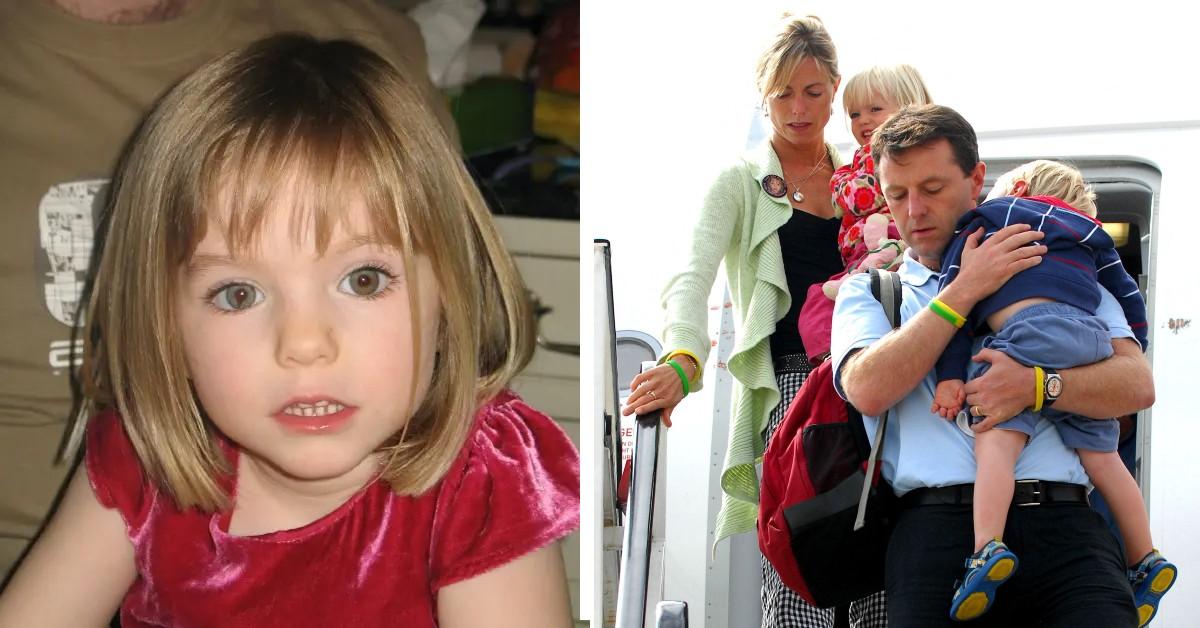Oct. 24, 2025, Published 7:15 p.m. ET
Madeleine McCann’s twin siblings, Sean and Amelie, have lived most of their lives under the long shadow of one of the world’s most haunting mysteries. Now 20, RadarOnline.com can reveal the pair have quietly emerged as accomplished young adults – carving out their own paths while preserving the hope that has defined their family since Madeleine’s disappearance in 2007.
Growing Up in the Shadow of Loss
When Madeleine vanished from a holiday apartment in Praia da Luz, Portugal, her brother and sister were only two years old, asleep in the same room.
In the 17 years since, parents Kate and Gerry McCann have fought an unrelenting campaign to keep the search alive, while protecting their younger children from the glare of global media.
This week, the twins’ lives briefly intersected again with the case that has defined their family, as they gave evidence in the trial of two women accused of stalking the McCanns.
A family friend said: “Kate and Gerry were determined that the twins would have a real childhood, not one defined by what happened to their sister. They’ve done everything they can to make sure Sean and Amelie grow up as their own people, not just as part of the tragedy.”
Kate, now 57, has previously spoken about the challenge of balancing that normality with the protective instincts born from trauma. She gave up her job as a GP to be at home full-time. Writing in her memoir Madeleine: Our Daughter’s Disappearance and the Continuing Search for Her, she revealed how difficult it was to trust anyone else to look after them.
“They have their own friends and they keep busy and they’re really sporty,” she writes. “But their only wish is for their big sister to come home.”
Sean McCann’s Drive and Determination
That sense of routine, family, and purpose has carried the twins into adulthood. Sean, a promising freestyle swimmer, has competed in open-water events across Europe and is said to be targeting a place at the 2028 Los Angeles Olympics.
He is studying chemical engineering at university, juggling academic work with a grueling training schedule.
A sports source claimed: “He’s unbelievably disciplined – in the pool before most people are even awake. That routine has been his anchor since childhood, a way of staying focused through everything the family has endured.”
Amelie McCann’s Quiet Strength
Amelie, meanwhile, has pursued her own interests, taking part in triathlons and cross-country competitions while studying at a northern university.
A close family acquaintance said: “Amelie’s strong-willed and quietly confident, with a real sense of empathy. She doesn’t seek attention and keeps a tight circle, but her bond with her parents is unshakable.”
The twins have largely stayed out of public view, though Amelie made a rare appearance at a vigil for Madeleine last year, telling the crowd, “It’s nice that everyone is here together, but it’s a sad occasion.”
Her composure was widely noted – a quiet reflection of the resilience the McCanns have always tried to instill.
Living Beyond the Tragedy
Kate’s uncle, Brian Kennedy, said recently the family is proud of how Sean and Amelie have flourished.
“They’re making their own way in life,” he said. “Kate and Gerry couldn’t ask for more.”
Yet psychologists say the weight of growing up amid such tragedy can never be entirely escaped. Dr. Audrey Tang, a chartered psychologist, said, “You’ve got all this narrative going on around them that they’re not necessarily able to process. And they’ve actually lost their sister; they’ve been through something awful.”
For all the attention that continues to surround the McCanns, their twins have managed to do what once seemed impossible – to live, quietly and determinedly, beyond the tragedy that changed their family forever.
https://radaronline.com/p/madeleine-mccann-twin-siblings-life-after-tragedy-revealed/
